How Tesla is fighting back with the new Model 3
The world’s top car companies are gunning for this best-selling EV, prompting Elon Musk’s electric-car brand to respond with new tech.
Motoring News
Don't miss out on the headlines from Motoring News. Followed categories will be added to My News.
Australia’s best-selling sedan just got better.
Tesla has upgraded the Model 3, shoring up its appeal in the face of increased competition.
Rival brands such as Volkswagen, Hyundai, Kia, Polestar, Mercedes and BMW are trying to convince customers to steer away from Elon Musk’s electric cars.
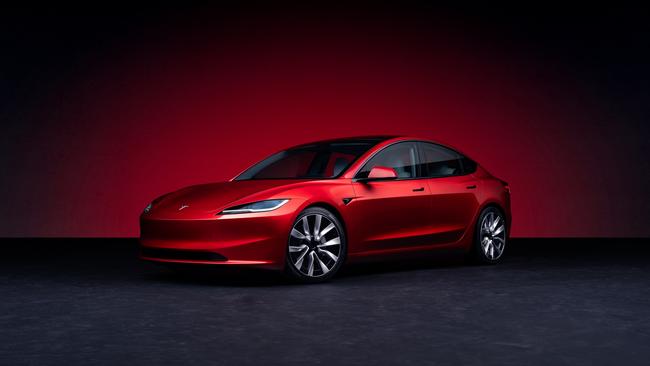
So Tesla has tried to beat them at their own game.
The Model 3’s performance and range place it toward the top of the class for sub-$100,000 electric vehicles, so Tesla focused on improving the car’s weaknesses for 2024.
The changes start with a new look, including reworked head and tail-lights that deliver a more focused appearance.
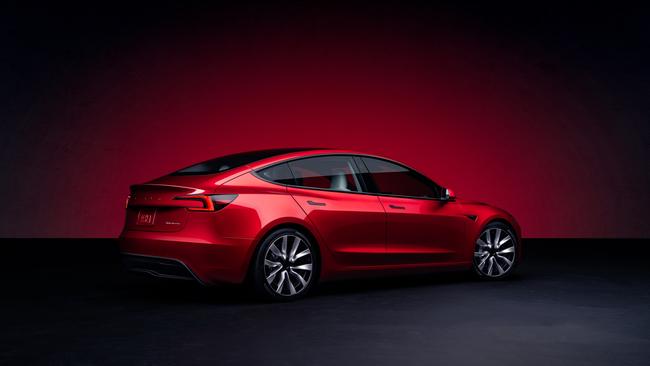
New alloys are also part of the deal, along with “stealth grey” and “ultra red” paint. But folks hoping for a broader choice of colours will be disappointed – the only other tones are black, white and deep blue.
Bigger changes to the inside include an upgraded 15.4-inch central touchscreen upfront, along with a new steering wheel that follows the likes of Ferrari by having buttons for indicators instead of stalks on the steering column.
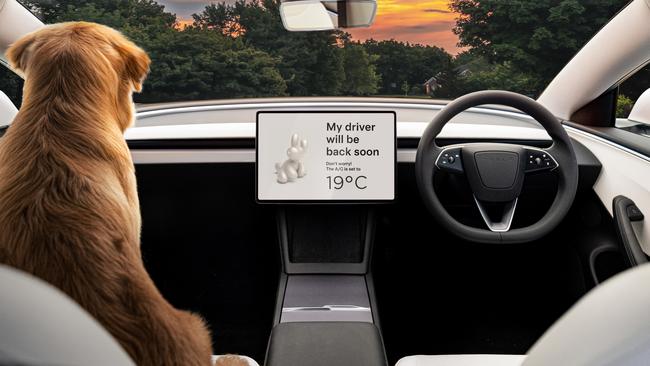
Recognising that some of its customers are coming from luxury cars or well-equipped models from mainstream brands, Tesla added ambient lighting to the cabin, along with ventilated seats.
Upgraded wireless charging pads are part of the deal, joining softer, more sophisticated materials in a cabin that promises to be quieter than before.
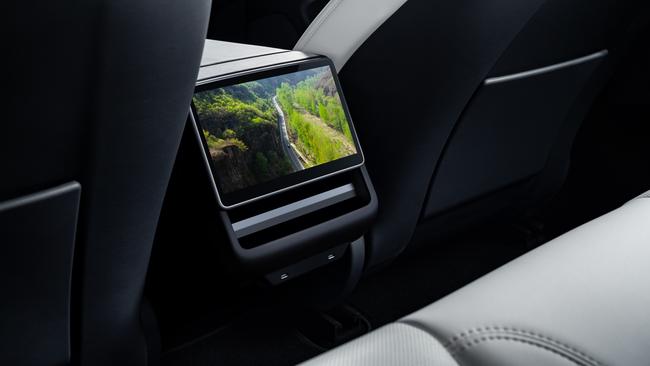
A 17-speaker stereo with dual subwoofers and amplifiers should help the Tesla retain its place as the pick for audiophiles, while families will appreciate the addition of an 8-inch rear touchscreen with infotainment and climate controls in the back seat.
The changes add $1500 to the price of the standard rear-wheel-drive model, which costs $61,900 plus on-road costs (about $65,000 drive-away).
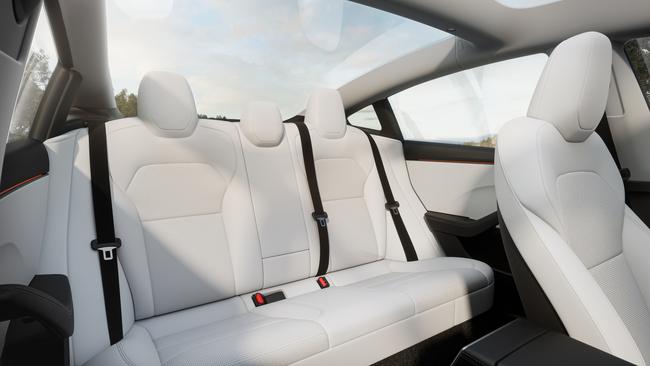
The upgraded model claims 513 kilometres of range (a 22km improvement), and a 6.1 second dash to 100km/h
Optional extras include swapping standard black 18-inch wheels for 19-inch alloys ($1800), and upgrading to a white interior ($1500).
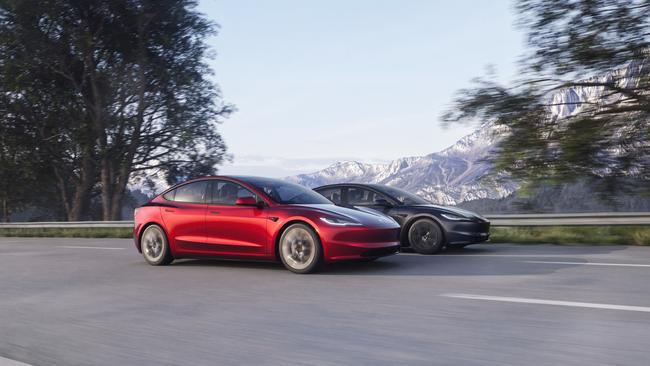
Customers can also choose to add Tesla’s “enhanced autopilot” driver assistance, or the promise of “full self-driving capability” – which isn’t available in Australia yet – for $10,100.
Folks with an extra $10,000 to spend can get hold of a Model 3 Long Range for $71,900 plus on-roads ($75,000 drive-away)
Long-range all-wheel-drive models have a bigger battery that delivers 629 kilometres of claimed range (27km more than before), and an extra motor upfront that returns a 4.4 second sprint to 100km/h.
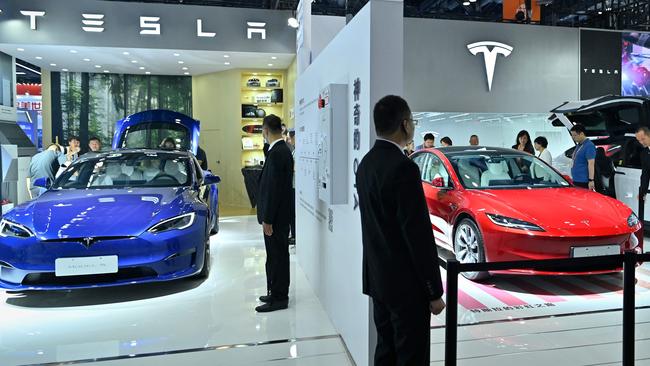
It can accept charge at a 250kW rate, which is enough to add 282km of range in 15 minutes.
Tesla has not unveiled a replacement for the Model 3 Performance, a car that rivals the BMW M3 for straight-line punch.
Upgraded Model 3 sedans will reach Australia in the first quarter of 2024.
Originally published as How Tesla is fighting back with the new Model 3


